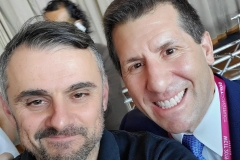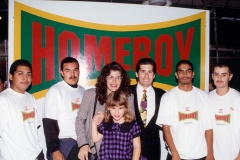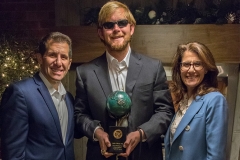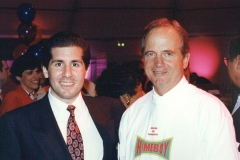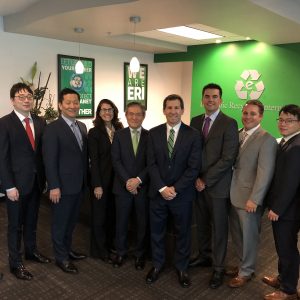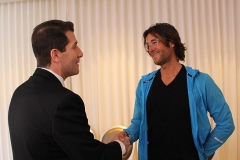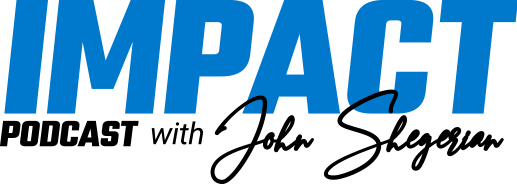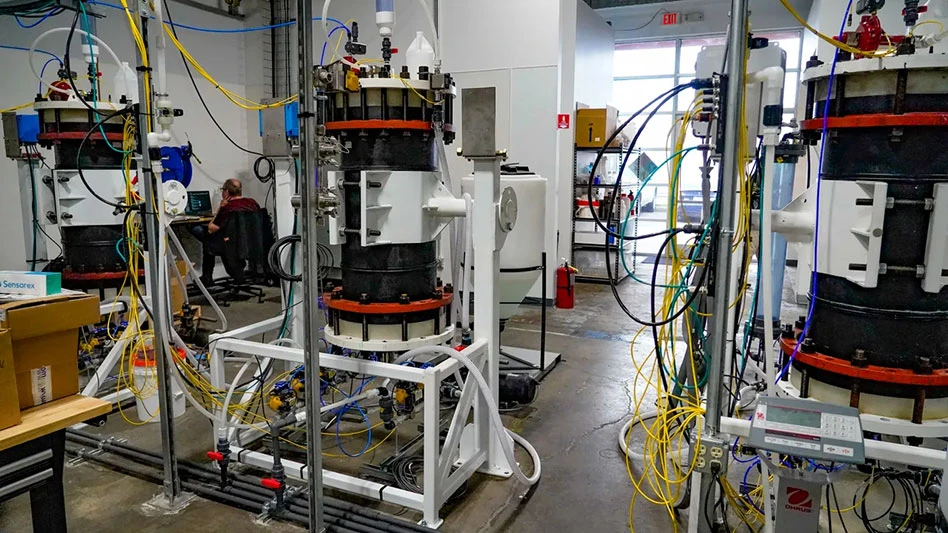
ERI and ReElement Technologies Corp., a portfolio company of American Resources Corp., have announced a strategic partnership to recover and refine rare earth elements (REEs) from electronics.
Fresno, California-based ERI is a leading information technology asset disposition and electronics recycling firm with additional processing operations in Goodyear, Arizona; Plainfield, Indiana; Holliston, Massachusetts; Lincoln Park, New Jersey; Flower Mound, Texas; and Kent, Washington.
Chairman and CEO John Shegerian says the company’s Fresno and Plainfield locations are its first sites to aggregate and ship material to ReElement. “We are starting small with smart watches, earbuds, speakers and smaller hard drives,” he says. “We will increase [our shipments] as our volumes increase and their volumes increase.”
ERI is sorting material by product type and preparing it according to the specifications established by ReElement, which is constructing a second facility, measuring 400,000 square feet, in Marion, Indiana, that will be operational in early 2026.
ReElement, headquartered in Fishers, Indiana, operates a commercial qualification facility in Noblesville, Indiana, that measures 700 square meters, or more than 7,500 square feet, that produces rare earth oxides and critical battery elements.
Mark Jensen, chairman and CEO of ReElement Technologies, says the company’s Marion site will be the largest rare earth oxide producer in the country once it’s operational, with the ability to produce 9,000 metric tons of purified rare earth oxides from recycled inputs as well as virgin ores.
“We can take everything [ERI] can produce,” he says, adding that the company’s strengths lie in aggregating and breaking down material. Jensen adds that the companies are working together to establish how far ERI will need to break down material versus when it might make more sense for ReElement to do so. “The economics will dictate that,” he says, adding that the partners also are looking at how to extend their relationship beyond the U.S., with Shegerian noting that ERI plans to add locations in Japan, the Emirates, India and Canada in the near future.
“We can win additional business together to make sure these products get back in the supply chain,” Jansen continues, noting that 95-98 percent of REEs currently end up in landfills. “I’m highly confident we can expand this partnership together.”
Like-minded partners
Shegerian says ERI has been in contact over the years with various companies that planned to something akin to what ReElement does. However, he says they either had no funding or scalable technology, “and the people weren’t the right people.”
Over a year of meetings and negotiations, Shegerian says, it was clear that ReElement was using technology that accomplished what the company said it was going to do. Additionally, he says, “They aligned with us from a DNA and chemistry perspective,” noting that both companies recognize the value of long-term partnerships. (ERI has partnerships with South Korea-based LS-Nikko Copper, Alcoa and Redwood Materials, while ReElement has partnered with South Korea-based Posco International and Vulcan Elements, an American rare earth magnet manufacturer.)
Shegerian describes the team at ReElement as “tireless entrepreneurs, relentless innovators and kind and nice people.”
Jensen describes ERI as a world-class leader in the ITAD and electronics recycling sector, adding that ReElement wanted to partner with the best company that could provide aggregation services.
“ERI is a trusted partner to leading U.S. technology companies and hyperscalers, and their ability to efficiently source and process recycled magnet material is unmatched,” he says in the news release announcing the partnership. “Pairing their feedstock capabilities with ReElement’s advanced refining platform positions us to accelerate true circularity for critical minerals in the United States and deliver high-purity rare earth elements for our current and expanding customer base.”
ReElement’s technology
The end-of-life magnets ReElement sources through ERI are processed into an aqueous-based solution to be separated and purified back to magnet-grade material to be reused in manufacturing. Its use of chromatography, a separation technique that is widely used in chemical laboratories, replaces the need for hydrometallurgical or solvent extraction in the separation and purification step. ReElement’s patented process can purify targeted materials on an isolated or mixed basis, according to the company.
Chromatography was developed over decades and is used sugar refinement and pharmaceutical production, including of insulin.
“The difference in what we do versus legacy technology is use densely packed columns with resins that are predicated on what we want to separate,” Jensen says.
Collaboration required
Jensen says collaboration is extremely important to the budding REE recycling industry to help drive down cost structure. “I’ve operated in the commodity industry for 25 years. If you don’t care about cost in that industry, you’re not going to be around for long. We are focusing on working with partners that are best in class—we don’t want to compete against them but work collectively to make one another’s business better.”
Building mineral independence
The agreement between ERI and ReElement strengthens the U.S.’ ability to establish a circular and secure supply chain for REEs at a time of growing strategic demand, according to the partners. By integrating ERI’s scale in responsible electronics recycling with ReElement’s advanced, modular refining platform, the partnership provides a consistent pathway to generate high-value, domestically sourced mineral output.
ReElement recently benefited from a joint partnership of $1.4 billion with the U.S Department of War’s Office of Strategic Capital (OSC) that was announced earlier this month. The funding supports the expansion of ReElement’s partnership with Vulcan Elements to scale a vertically integrated, domestic rare earth magnet supply chain.
The OSC commitment, funded through the One Big Beautiful Bill Act, includes two separate loans, matched by private capital—$620 million to Vulcan Elements and $80 million to ReElement Technologies—with the U.S. Department of War receiving warrants in ReElement.
Shegerian says the Trump administration is very focused on growing domestic independence for REEs and other critical minerals that are essential to the growth of AI and data centers and electric vehicles. Japan and Canada are as well. “They all want to do the same thing … derisk from being dependent on [China].”
He says the timing of ERI’s partnership with ReElement couldn’t be better. “Partnerships are always exciting, but this is so relevant to everything going on today.”
Shegerian continues, “ReElement’s groundbreaking technology and solutions make it the leading refiner of high-performance critical battery and rare earth elements required in energy, transportation, defense and other technologies. This new relationship will open the door for a whole new wave of U.S.-based capabilities in the rare earth realm that will have both domestic and global implications.”


